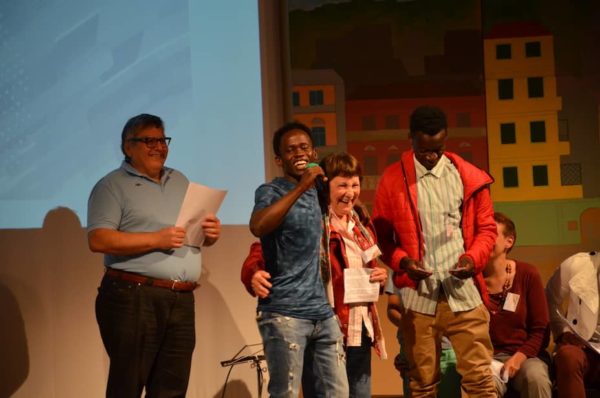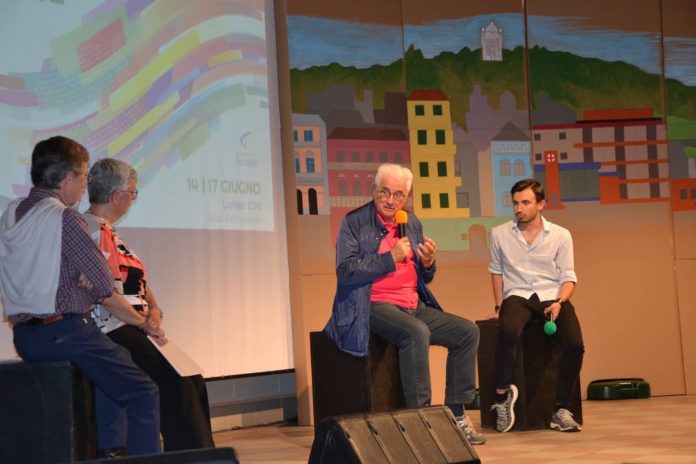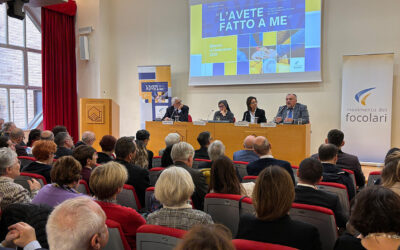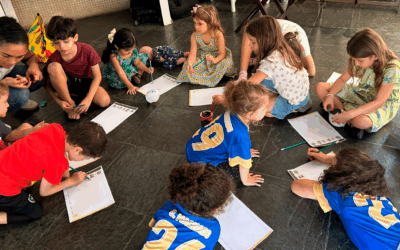 “Visions of light are always beneficial, especially in a world where lights are scarce.” These were the first comments I got from Anna, who declares to be a nonbeliever, at the door of the hall which hosted the first Mariapolis of Piedmont. “Visions of light” was the title of the three days lived by over 200 people of all ages and social classes, coming from different cities of this region. Light that breaks out from moments of spirituality and sharing, and which has enlightened the burning issues of today, such as Europe, immigration, Middle East, and end-of-life and palliative treatments, alternated with programs of relaxation and excursions to regenerate body and soul. And not only all that, against the dark background of public life and economic and political uncertainty, in a climate which makes brotherhood seem like a luxury only for a few, a vision of light also enlightened the life of Bra, a city with a very ancient history, but projected towards the future. Here fraternity elevated to a political category, has been for years written in the Charter of the city. And it did not remain a dead letter. Two adolescents, with the support of power point, demonstrated actively with a slogan, “Let’s colour” the city. There were many initiatives, like whitewashing the walls of the school or the ill-treated walls of the city, the gathering of cigarette butts from the ground, cleaning of weeds, and visits to the elderly in the nursing homes. The purpose was to leave a sign of love everywhere and spread to the others the happiness experienced when the revolution of the Gospel is put into action, following the example of one of the region’s honorary citizens, Chiara Lubich.
“Visions of light are always beneficial, especially in a world where lights are scarce.” These were the first comments I got from Anna, who declares to be a nonbeliever, at the door of the hall which hosted the first Mariapolis of Piedmont. “Visions of light” was the title of the three days lived by over 200 people of all ages and social classes, coming from different cities of this region. Light that breaks out from moments of spirituality and sharing, and which has enlightened the burning issues of today, such as Europe, immigration, Middle East, and end-of-life and palliative treatments, alternated with programs of relaxation and excursions to regenerate body and soul. And not only all that, against the dark background of public life and economic and political uncertainty, in a climate which makes brotherhood seem like a luxury only for a few, a vision of light also enlightened the life of Bra, a city with a very ancient history, but projected towards the future. Here fraternity elevated to a political category, has been for years written in the Charter of the city. And it did not remain a dead letter. Two adolescents, with the support of power point, demonstrated actively with a slogan, “Let’s colour” the city. There were many initiatives, like whitewashing the walls of the school or the ill-treated walls of the city, the gathering of cigarette butts from the ground, cleaning of weeds, and visits to the elderly in the nursing homes. The purpose was to leave a sign of love everywhere and spread to the others the happiness experienced when the revolution of the Gospel is put into action, following the example of one of the region’s honorary citizens, Chiara Lubich.  “The initiatives of these kids,” underlined the Mayor, Bruna Sibille, “have contaminated those who are older, other communities like the Albanese one, workers of the construction sector, groups of the Orthodox faithful together with the head, a group of Romanians and other district realities. Next September– she announced – before school starts, we shall meet to continue working together.” One of the programmatic points at the base of her mandate, which is about to end, was to “boost social cohesion through the idea of the city to that of a city as an inclusive community.” She added: “The boys and girls have been a very important uniting factor towards this goal. This is how the basis is set to give an important sign of how to manage a city and educate the future generations of administrators, in a moment in which there are many negative examples. If one takes care of one’s own city and the common good – she concluded – we will have a safer city and can overcome many evils, which are not always real but virtual, and even more difficult to overcome.”
“The initiatives of these kids,” underlined the Mayor, Bruna Sibille, “have contaminated those who are older, other communities like the Albanese one, workers of the construction sector, groups of the Orthodox faithful together with the head, a group of Romanians and other district realities. Next September– she announced – before school starts, we shall meet to continue working together.” One of the programmatic points at the base of her mandate, which is about to end, was to “boost social cohesion through the idea of the city to that of a city as an inclusive community.” She added: “The boys and girls have been a very important uniting factor towards this goal. This is how the basis is set to give an important sign of how to manage a city and educate the future generations of administrators, in a moment in which there are many negative examples. If one takes care of one’s own city and the common good – she concluded – we will have a safer city and can overcome many evils, which are not always real but virtual, and even more difficult to overcome.”
Carla Cotignoli




0 Comments